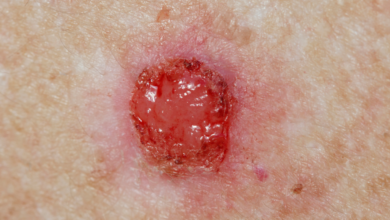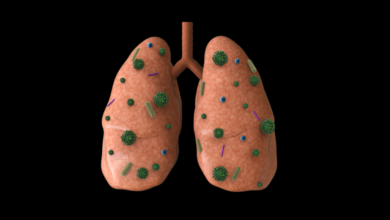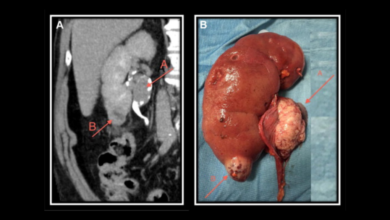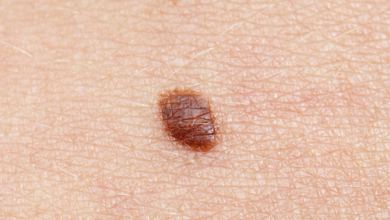
What is Lung Cancer?
Lung cancer is a type of cancer that begins in the lungs. It’s one of the leading causes of cancer-related deaths worldwide.
Types of Lung Cancer
The two main types of lung cancer are:
- Non-Small Cell Lung Cancer (NSCLC): This is the most common type of lung cancer. It includes:
o Adenocarcinoma: The most common type of lung cancer, often occurring in people who have never smoked.
o Squamous cell carcinoma: This type of lung cancer is more common in smokers.
o Large cell carcinoma: A less common type of lung cancer that grows rapidly. - Small Cell Lung Cancer (SCLC): This type of lung cancer tends to grow and spread more quickly than NSCLC.
Symptoms of Lung Cancer
Early-stage lung cancer often doesn’t cause any symptoms. As the cancer progresses, symptoms may include:
• Persistent cough
• Chest pain
• Shortness of breath
• Wheezing
• Hoarseness
• Loss of appetite
• Weight loss
• Fatigue
• Blood in sputum
Causes of Lung Cancer
The primary cause of lung cancer is smoking. Other risk factors include:
• Secondhand smoke
• Exposure to radon gas
• Exposure to certain chemicals and pollutants
• Family history of lung cancer
• Certain genetic conditions
Who Can Suffer from Lung Cancer?
Anyone can develop lung cancer, but it is more common in smokers and those exposed to secondhand smoke.
Diagnostic Tests for Lung Cancer
To diagnose lung cancer, a doctor may use a combination of tests, including:
• Chest X-ray: To identify abnormalities in the lungs.
• CT scan: To get a more detailed image of the lungs.
• PET scan: To detect cancer cells that have spread to other parts of the body.
• Bronchoscopy: A procedure to examine the airways using a flexible tube with a light and camera.
• Biopsy: A small tissue sample is removed and examined under a microscope to confirm the diagnosis.
Stages of Lung Cancer
The staging of lung cancer helps determine the extent of the disease and guides treatment decisions. The most common staging system is the TNM system, which considers the size of the tumor (T), the spread to nearby lymph nodes (N), and the presence of distant metastases (M).
Treatment of Lung Cancer
The treatment for lung cancer depends on the stage and type of cancer, as well as the patient’s overall health. Common treatment options include:
• Surgery: To remove the cancerous part of the lung.
• Chemotherapy: To kill cancer cells throughout the body.
• Radiation therapy: To kill cancer cells with high-energy rays.
• Targeted therapy: To target specific molecules involved in cancer cell growth.
• Immunotherapy: To boost the body’s immune system to fight cancer cells.
Diet and Lung Cancer Prevention
While a healthy diet can’t completely prevent lung cancer, it can support overall health and reduce the risk of other health problems. A balanced diet rich in fruits, vegetables, and whole grains is recommended.
The most effective way to prevent lung cancer is to avoid smoking and exposure to secondhand smoke.
Diet and Lung Cancer Prevention
While a healthy diet can’t directly prevent lung cancer, it can contribute to overall health and reduce the risk of other health problems that may indirectly affect lung health. Here are some dietary recommendations:
• A balanced diet: A diet rich in fruits, vegetables, and whole grains can help.
• Limit processed meats: Consuming too much processed meat can increase the risk of certain cancers.
• Maintain a healthy weight: Obesity can increase the risk of various health problems, including lung cancer.
Overall Survival Rate of Lung Cancer
The overall survival rate for lung cancer varies depending on the stage of the cancer, the type of treatment received, and the individual’s overall health. Early detection and timely treatment significantly improve the prognosis.
Doctor to Consult
A pulmonologist or a thoracic surgeon is the best doctor to consult for lung cancer.
Diseases Associated with Lung Cancer
Lung cancer is often associated with other respiratory diseases, including:
• Chronic obstructive pulmonary disease (COPD): A lung disease that makes it difficult to breathe.
• Emphysema: A lung condition that causes shortness of breath.
• Chronic bronchitis: A lung condition that causes inflammation of the airways.
How to Prevent Lung Cancer
The most effective way to prevent lung cancer is to avoid smoking and exposure to secondhand smoke. Additionally:
• Regular check-ups: Regular check-ups can help detect lung cancer early.
• Healthy lifestyle: Maintaining a healthy weight, eating a balanced diet, and getting regular exercise can reduce the risk of lung cancer.
• Limit exposure to pollutants: Exposure to air pollution and other environmental pollutants can increase the risk of lung cancer.





